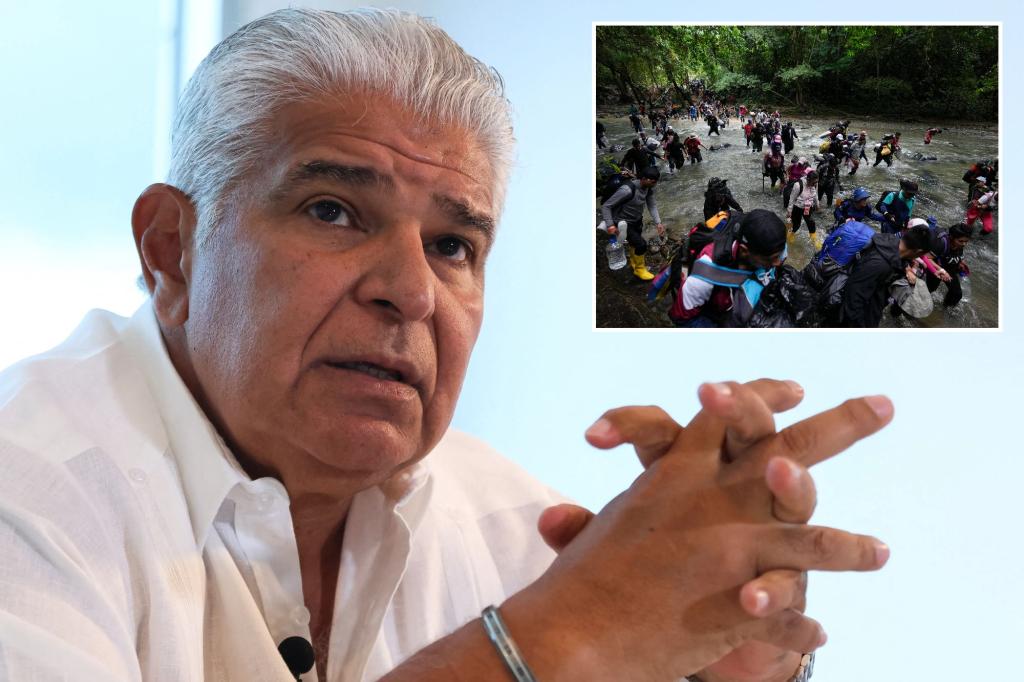President-elect Jose Raul Mulino of Panama has pledged to enact significant changes to help address the US border crisis. He plans to close the migration gap through Panama that has been exploited by over 500,000 migrants in the past year. This decision marks a shift in Panama’s approach to the migration issue, viewing the country’s Darien Gap as a border rather than a transit route for migrants heading north.
Panama was previously facilitating the movement of migrants through the critical gap, allowing them to continue their journey towards the US border with Mexico. However, Mulino’s administration intends to change this policy, making Panama a less attractive option for migrants and criminal organizations. By implementing an immediate deportation plan, the president-elect aims to deter future attempts to transit through Panama. The goal is to decrease the appeal of the Darien Gap route for migrants seeking entry into the United States.
The United States has been pressuring Mexico to assist in addressing the ongoing border crisis by enforcing movement restrictions in its territory to prevent migrants from reaching the US border. The Darien Gap, despite being a hazardous route, has gained popularity among migrants in recent years due to its affordability. Cartels and organized crime groups have taken advantage of this situation, further complicating the issue of irregular migration in the region.
Even with Mulino’s proposed deportation plan, some experts remain skeptical about its effectiveness in reducing migration levels significantly. Analyst Adam Isacson from the Washington Office on Latin America believes that Panama lacks the capacity to carry out mass deportations of thousands of migrants. He estimates that a daily deportation flight, which would be costly, would only repatriate around 10% of the migrant flow passing through Panama. Comparatively, the United States conducts approximately 130 deportation flights worldwide each month.
The incoming administration in Panama is adopting a tougher stance on migration, emphasizing the country’s responsibility to secure its border and deter unauthorized crossings. By closing the migration gap through Panama, President-elect Mulino hopes to dissuade migrants from using this route to reach the US border. This shift in policy aligns with efforts to address the broader challenges associated with irregular migration, organized crime, and border security throughout the region.
As the US continues to grapple with the border crisis and pressures neighboring countries to cooperate in its containment, Panama’s decision to close the Darien Gap underscores the complex and interconnected nature of migration flows in the Americas. By taking steps to control the movement of migrants through its territory, Panama aims to contribute to broader regional efforts to address the root causes of irregular migration and promote sustainable and lawful pathways for migration in the future.


